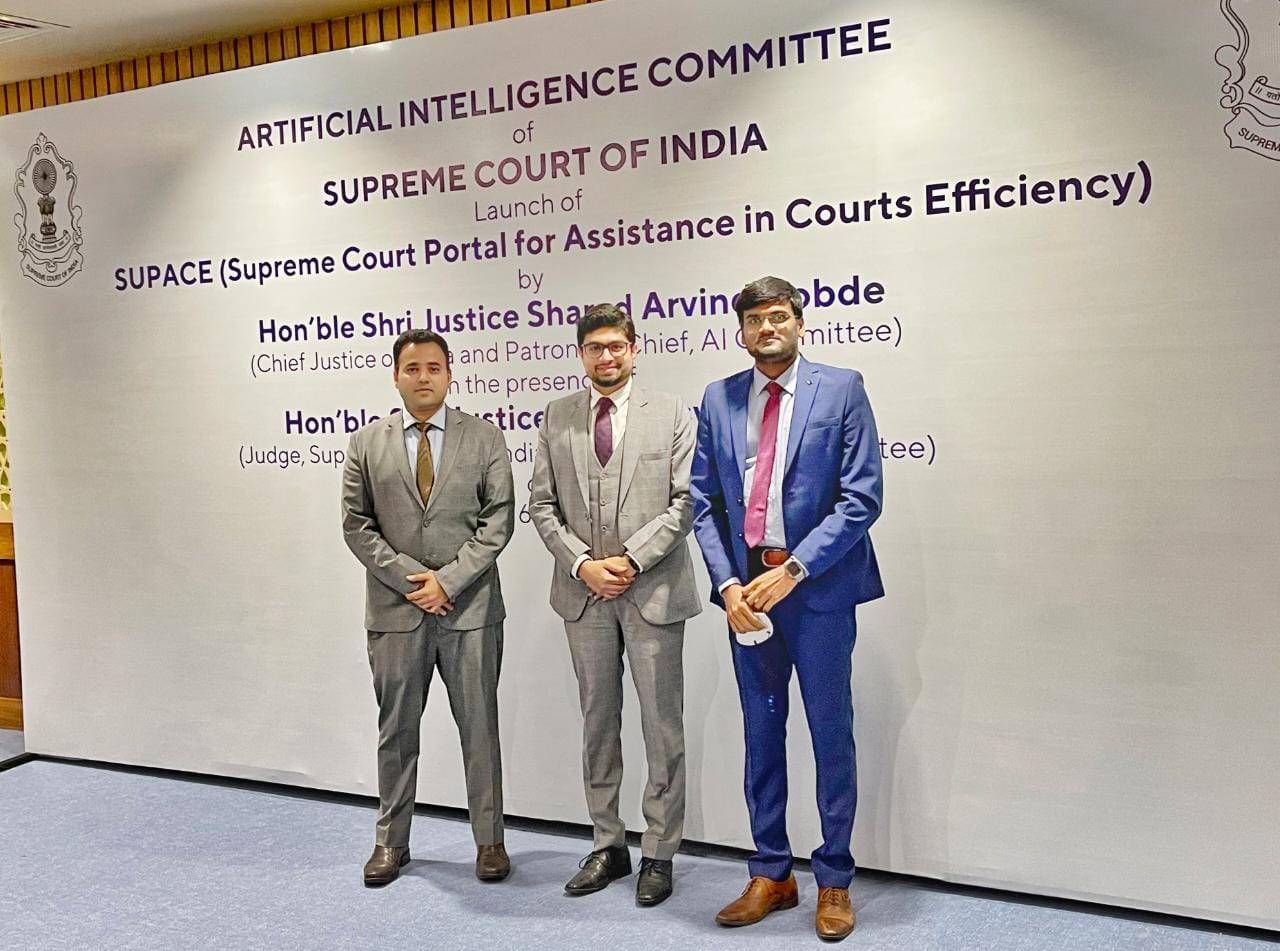
In April, the Supreme Court of India launched its artificial intelligence portal to reduce the burden on judges by making legal research and review easier. Few know, however, that a small startup helped build it.
ManCorp Innovation Labs was behind the development of the automation platform called SUPACE—Supreme Court Portal for Assistance in Courts Efficiency—that India's apex decision making body has deployed. The portal was unveiled to assist in improving efficiency and speeding up resolutions.
"Most of the legal fraternity still work traditionally and use general tech tools at a time when other high value services have specialised offerings. Accountants have Tally, architects have AutoCad," Co-founder and Chief Executive Manthan Trivedi told BloombergQuint. "We saw an opportunity to create something similar for lawyers and judges."
The feature-rich portal is intended to make judges and staff save time spent on scouring volumes of documents. It has an AI-powered chatbot that can read scanned documents and extract the relevant facts. It can automatically provide synopsis to documents and has an integrated workflow system. Besides, Trivedi said there are other rudimentary tasks that the portal can automate for the judges.
"Over time, the machine can learn from experience," he said. "And as we provide more data, the program learns and makes predictions about the document, thereby making the underlying system more intelligent with every use."
ManCorp's journey didn't start with the Supreme Court project. The startup, founded by Harvard dropout Trivedi along with Rathin Deshpande and Vishnu Gite, was initially conceived as a think tank and research lab for artifical intelligence. The goal was to develop AI-powered technology solutions. "Legal and judicial space just happened to be the first problem we attempted to solve."

From left to right: Rathin Deshpande, Manthan Trivedi and Vishnu Gite (Source: ManCorp)
The startup has earlier developed software for the High Courts of Patna and Jharkhand. It built a smart case allocation system for the Patna High Court which suggests allocation of cases to specific benches and Judges based on their track record of expertise in the subject matter. For Jharkhand High Court, it built a chatbot for automated document review.
"The projects implemented at the High Courts of Jharkhand and Patna were pilots of small features, which upon their success, were integrated and adopted by the Supreme Court of India under its flagship AI portal SUPACE," he said.
Trivedi sees further applications of this technology in other aspects of law, too. "There is huge potential of applying AI in complementing decision making in almost all legal fields including litigation management, contracts, motor vehicular claims, taxation, negotiable instruments cases."
But he draws the line at letting AI make legal decisions. "AI is a means to improve human decision making by allowing them to make informed choices," he said. "Just like in human decision making even with AI we must be careful in reducing bias and increasing internal regulation for better complimentary function."
Even then Chief Justice SA Bobde, who had pushed for the development of SUPACE, had said that AI should be kept away from decision making.
The worries are partially also due to the lack of regulation around artifical intelligence. "One of the inherent features of any technology is that it constantly evolves at a rapid pace. Its regulation, historically, has to catch up to this constant evolution," Trivedi said. "This regulatory lag creates a space and ushers a responsibility on deep tech company to self-regulate. However, that requires strong commitment of companies to values like transparency, data protection, privacy, accountability and user autonomy."
Trivedi said he hopes to see a mix of internal and external regulation of deep tech and artificial intelligence in the future.
ManCorp has a team of 40, of which around 30 are part of the technical team at the research and development office in Pune. The rest are at the administrative office in Delhi. The startup, which has been bootstrapped till now, is hunting for investors for a seed funding round.
Trivedi said they're also open to deploying their technology to other sectors and not remain confined to just law. "All our technologies are solutions that can be customised for many different use cases," he said. "Our focus has always been to develop technologies that can help solve a problem at large rather than building something that caters to a single market."
Essential Business Intelligence, Continuous LIVE TV, Sharp Market Insights, Practical Personal Finance Advice and Latest Stories — On NDTV Profit.























